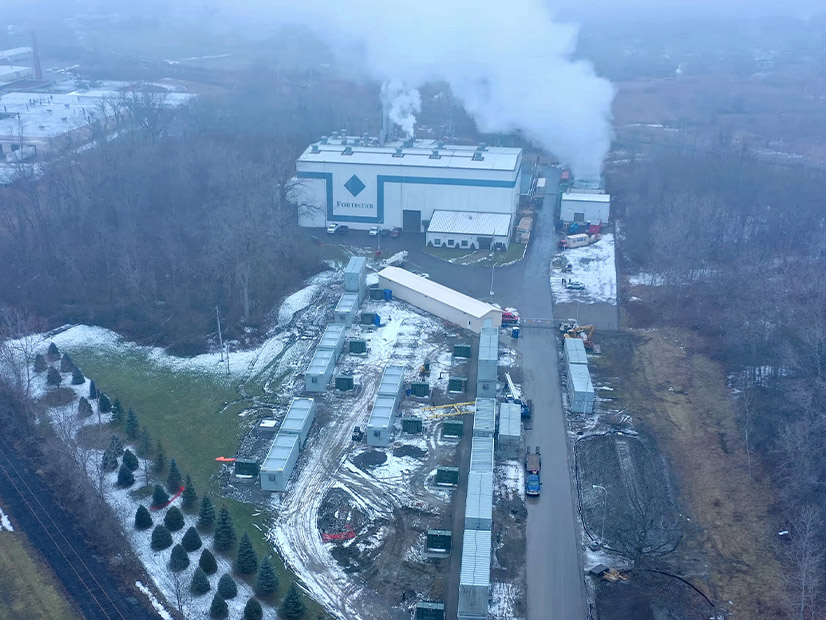Environmental advocates won a round in their long-running court battle over the conversion of a New York peaker plant into a cryptocurrency mining operation.
A county-level court on Nov. 14 ordered the state Public Service Commission to reconsider the decision that allowed the conversion to go through.
In 2022, the PSC (21-M-0238) and FERC (EC22-78) signed off on the sale of Fortistar’s 60-MW gas-fired plant in North Tonawanda to a subsidiary of Digihost Technology to power an on-site crypto farm. (See FERC OKs Sale of NY Power Plant to Crypto Miner.)
The PSC opted not to block the sale because it posed no potential harm to captive utility ratepayers and no potential exercise of market power.
FERC authorized the transaction because it found no impact on horizontal or vertical competition, no adverse impact on rates, no impairment of regulation and no cross-subsidization.
The Sierra Club and the Clean Air Coalition of Western New York challenged the PSC’s ruling on the grounds that it was inconsistent with the state’s Climate Leadership and Community Protection Act of 2019, which mandated policies to reduce the use of fossil fuel and minimize its impacts. (See Green Groups Seek to Block NY Power Plant Sale to Crypto Miner.)
The challenge initially was rejected in court and by the PSC, and the sale was finalized in early 2023.
Operation of the crypto facility has generated noise and air quality complaints in the neighborhood and prompted North Tonawanda to enact a two-year moratorium on new or expanded data centers and cryptocurrency mining operations.
Digihost, in its quarterly earnings report Nov. 15, called the North Tonawanda facility its flagship power plant. It said it had completed maintenance work and soon would bring the plant back to full operation.
The Nov. 14 ruling by Justice Richard Platkin in Albany County Supreme Court reopens the case before the PSC.
The PSC had no comment Nov. 15, saying only that it would review the latest ruling.
Earthjustice, which represented the environmental groups, celebrated the ruling.
Earthjustice said in a news release that the PSC erred in its review of the proposal, and said this allowed a gas peaker plant that had been operating 10 to 74 days a year to ramp up to 24/7/365 operation. This boosted carbon dioxide emissions as much as 3,500%, it said, and increased output of other harmful pollutants.
“This is not only a victory for the North Tonawanda community, but also a significant win for New York’s climate law,” said Dror Ladin, senior attorney at Earthjustice. “Today’s ruling confirms that every state agency and official must fully consider and uphold the CLCPA in all its decisions, safeguarding both our climate and the well-being of the public.”
The ruling was not a clean sweep for the environmental advocates.
Justice Platkin rejected their contention that the PSC failed to consider the impact on several nearby disadvantaged communities, as it is required to do under the CLCPA. The state had not finalized its designation of disadvantaged communities at the time, he ruled, and therefore the PSC could not have considered such impacts.
And he rejected the complainants’ request for declaratory judgment.
But the PSC had argued that allowing the sale to go forward was not an “affirmative approval” and therefore not subject to CLCPA requirements, and this was incorrect, Platkin wrote.
So he annulled the PSC rulings and remanded the matter for further proceedings.
If the PSC determines the sale will interfere with the state’s greenhouse gas emissions limits, it must identify alternatives or mitigation measures to be required near the plant, Platkin wrote.
An earlier appeal in the same case determined that substantial completion of a project may render a case moot, he wrote, but the CLCPA allows for substantial relief short of completely unwinding a transaction.




